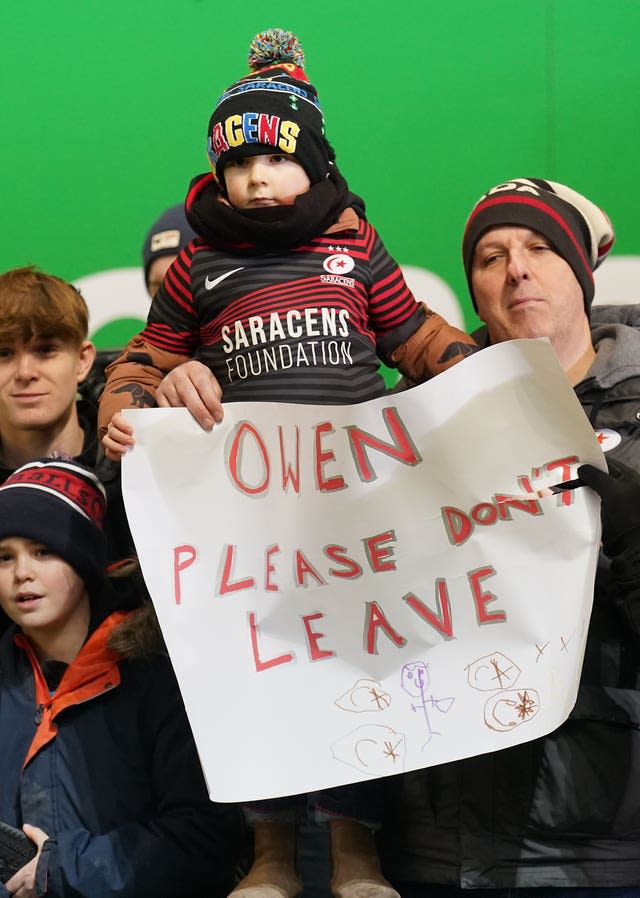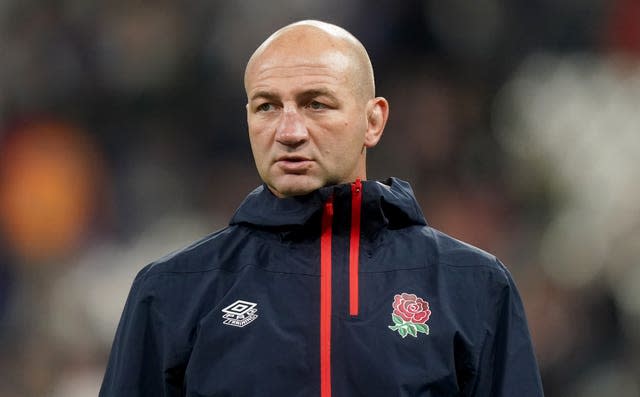What Owen Farrell’s France move means for player, England and eligibility rules
Owen Farrell’s departure for Racing 92 next season has been confirmed with the Saracens captain agreeing a two-year deal with the Parisians.
The ramifications for England and the Gallagher Premiership are significant and place the Rugby Football Union’s eligibility rules under the spotlight.
Here the PA news agency looks at the key questions surrounding the England and Lions fly-half’s move to France.
Why has Farrell joined Racing 92?

Farrell has not spoken publicly since news of his potential move to the Top 14 broke earlier in the month, but there are myriad reasons explaining its appeal. The 32-year-old has spent his entire career at Saracens where he has won every honour in the game and could be revitalised by a fresh challenge in a thriving league. There is the obvious financial appeal of playing in France when the generous salary cap means he could command close to £1milion a season. But the big question is just how much his departure from Saracens is a result of the intense and at times vicious scrutiny on England’s captain, especially during the build-up to the World Cup in France and during the tournament itself. Perhaps his decision to rule himself out of this year’s Six Nations to prioritise his and his family’s mental wellbeing provides the answer.
What does it mean for England?
Eligibility rules dictate that Farrell will be unavailable for selection when he leaves the Premiership, denying England the services of their talisman, leading Test points scorer and third most capped player. Farrell could realistically have expected to remain in contention for the number 10 jersey for the next two years – the duration of his Racing contract – so head coach Steve Borthwick is losing an influential player with much still to offer, raising the possibility that the World Cup bronze final victory over Argentina in October was his final international.
Could the eligibility rules change?

No. Instigated by the Rugby Football Union with the full backing of Premiership Rugby, they will remain in place for the foreseeable future despite the number of England players heading across the Channel. The rules are seen as critical to keeping the best talent on these shores, strengthening the English top flight and giving Borthwick greater control over his stars during international periods. Each nation has its own approach to the selection of overseas-based players – for example New Zealand have the same policy whereas South Africa have no restrictions whatsoever – but there is no will in England to loosen current rules.
Should England fans be worried?

Of England’s World Cup squad Farrell, Jack Willis, Joe Marchant, David Ribbans and Henry Arundell will be playing in the Top 14 next season with Lewis Ludlam and Kyle Sinckler set to join them. Other Red Rose internationals are already there. The size of the contingent is growing but two names really jump out – Farrell and Marchant. England did not want to lose their captain and fly-half at this point and Marchant was their first-choice outside centre at the World Cup, but his decision to join Stade Francais comes with the caveat that it was made before he had nailed down a place in Borthwick’s starting XV.
Is it Borthwick’s biggest concern?

While the departures of Farrell and Marchant are clearly a blow to England and the Premiership, Borthwick has more pressing concerns than the unavailability of a group of players on the fringes of the starting XV. A priority is to find two scrummaging props to take over from remarkable veterans Dan Cole and Joe Marler, whose set-piece expertise was proven to be so crucial at the World Cup. And the perennial problem position of inside centre still has only a stop-gap solution at best as the injury-prone Manu Tuilagi nears the end of his Test career.
